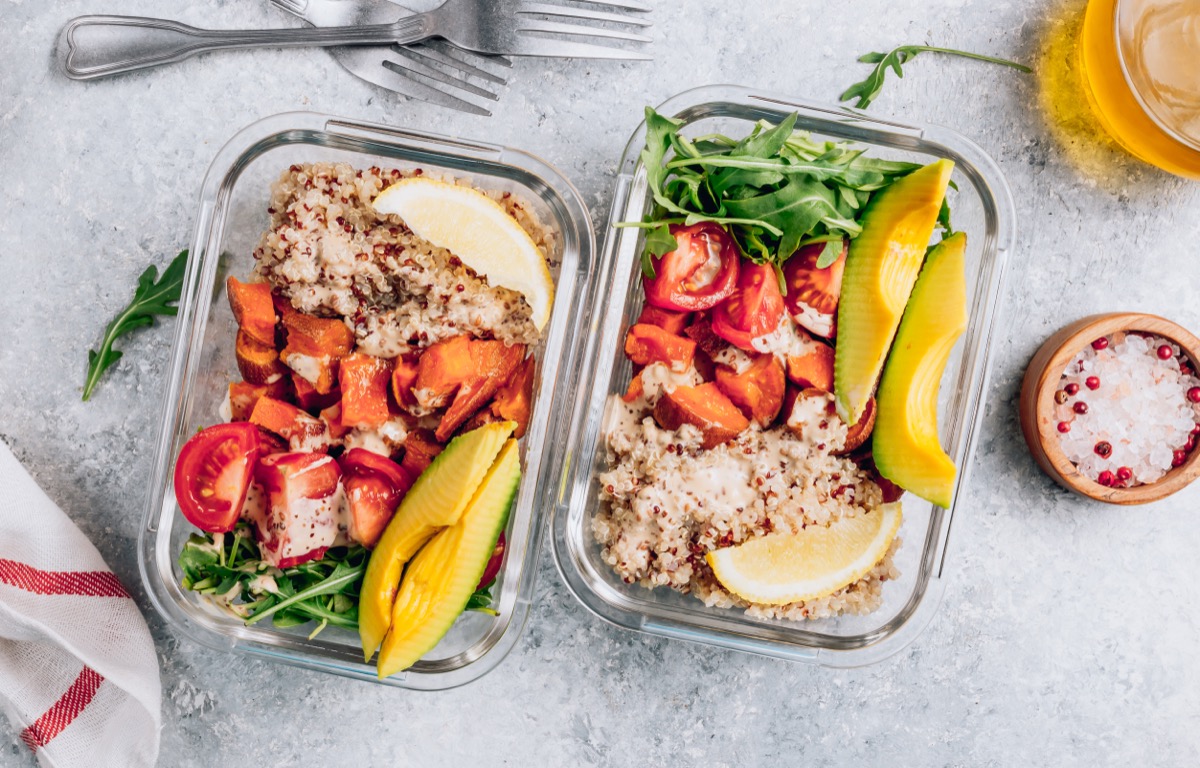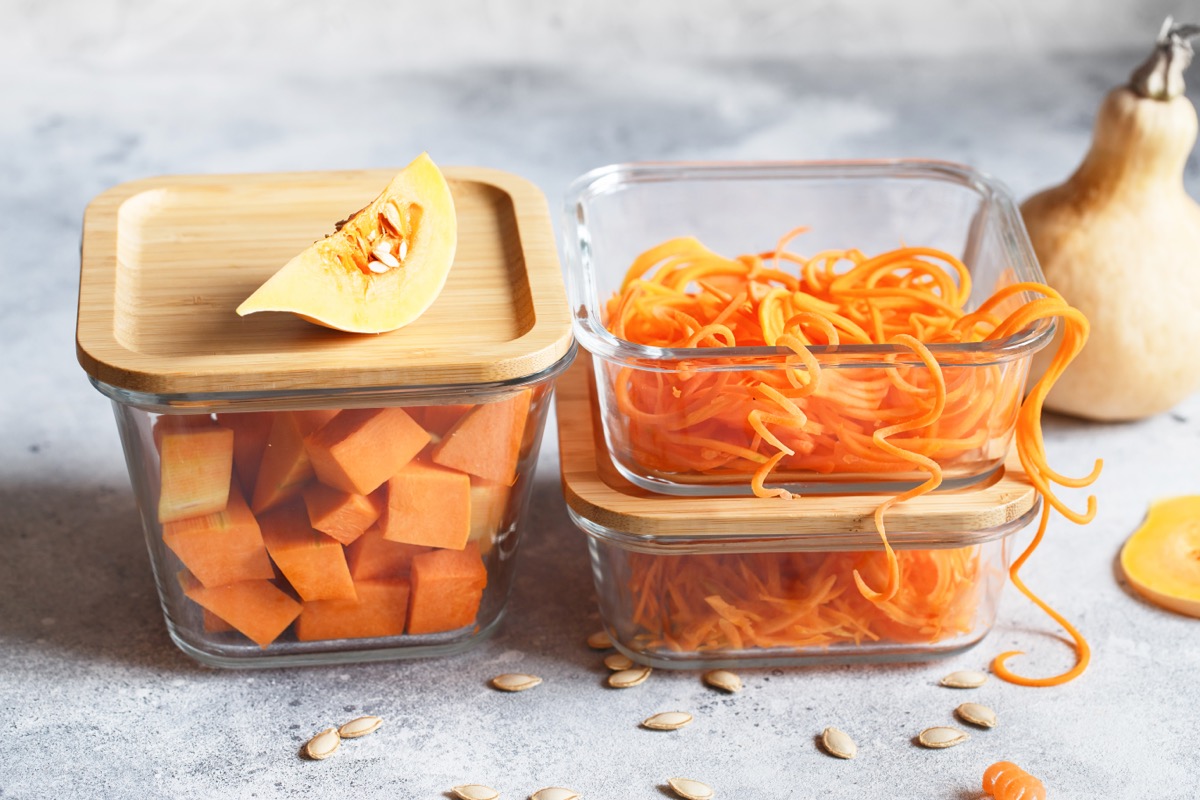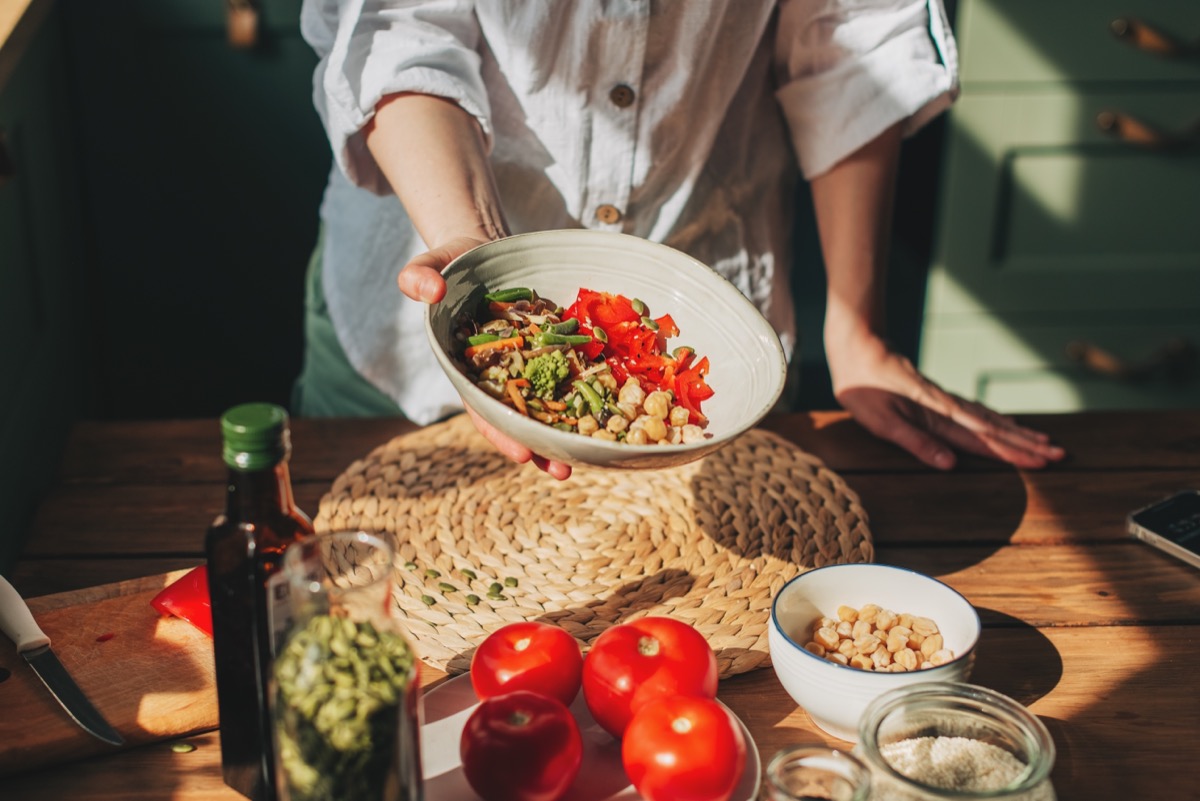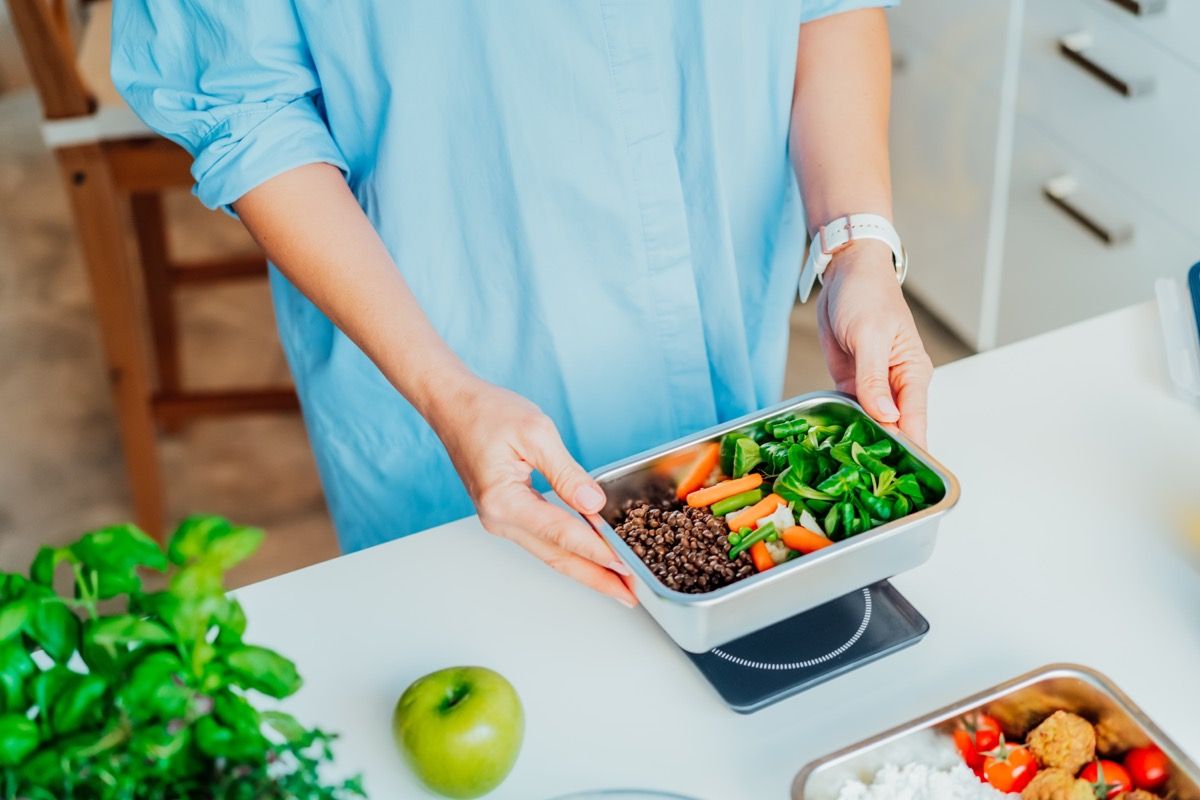How to Meal Prep for the Week: 10 Easy Tips and Tricks

Whether you live to eat or eat to live, you probably spend ample time in your kitchen preparing your meals. You also spend more time than you realize making decisions surrounding those meals: what to eat, how much to spend on ingredients, which portion sizes to serve, and so on. These conscious or unconscious decisions—and the fatigue you may feel while making them—can have a major impact on your health, finances, and more. That’s why learning how to meal prep has become an increasingly popular practice.
In particular, experts say that giving some forethought to meal planning and prepping can help you improve your nutrition, lose weight, save money, eliminate excess food waste, reduce your time spent cooking and cleaning, and more. Even if you don’t make it a regular part of your routine, keeping it in your back pocket for busy weeks can still come in handy, they advise.
Ready to learn how to meal prep for the week? These are the top 10 tips and tricks that dietitians and nutritionists share with their clients.
RELATED: 9 High-Fiber Foods for Weight Loss That Will Keep You Full and Satisfied.
1
Know your “why.”

There are plenty of reasons that you might decide to begin meal prepping—and your specific motivations can greatly influence how you go about it. Avery Zenker, RD, a registered dietitian working with EverFlex Fitness, recommends taking a moment to reflect on your “why” and set some goals before you get started.
“What are you hoping to get out of meal prepping? What do you want to make sure your meals include? This will help you choose your ingredients and decide which meals to make,” she tells Best Life.
2
Cook around your schedule.

Some people like to prep a full week’s worth of meals at once—but that’s not the only way to go about it. Rather than spending a full day shopping, prepping, cooking, and portioning, Emily Van Eck, MS, RD, a registered dietitian at Emily Van Eck Nutrition & Wellness, suggests planning for at least two cooking days and working around the natural flow of your schedule.
“I have found that traditional ‘meal planning’ often doesn’t work. It gets boring, requires a lot of labor upfront, and leaves us with very questionable food by the end of the week,” says the dietitian.
“I like to ask my clients what two days during the week usually work the best for cooking. Sunday and Wednesday? Monday and Thursday? Build your plan around your schedule, energy, and the time you have,” she suggests.
RELATED: 36 Pantry Staples Every Home Cook Needs.
3
Prep and batch-cook key ingredients.

Meal prepping can help save you time, money, and energy, and experts say you don’t necessarily need to make fully assembled meals to reap the benefits. Sarah A.O. Isenberg, a nationally board-certified health and wellness coach and the founder of Thrive Guide Health Coaching, recommends prepping your fruits and veggies.
“Washing, chopping, and portioning out fresh produce can be a tedious task, but doing it in advance can make healthy snacking and meal assembly a breeze. Spend an hour or two prepping a variety of fruits and vegetables, storing them in airtight containers or resealable bags for easy access throughout the week,” Isenberg suggests.
She also endorses batch cooking your proteins and grains in advance, so that your only task come mealtime is assembly.
“Cooking larger portions upfront means you’ll have a supply of these nutrient-dense ingredients ready to mix and match throughout the week. This saves time and reduces the temptation to order unhealthy takeout when you’re short on time,” she says.
4
Build in some low-effort variety.

Many people prefer to prepare meals for multiple days or even a week at a time. Zenker says one way to prevent boredom is to enhance your meals with a variety of condiments and spices.
“For example, you might make roasted potatoes with a few different seasoning mixes. Use different sauces, dips, spices, and herbs to increase the variety of your meals,” Zenker suggests.
RELATED: 10 Unexpected Ingredients to Make Delicious Salads.
5
Set some macronutrient goals.

Meal prepping is a great way to align your intentions and your actions when it comes to nutrition. By setting macronutrient goals and prepping your meals ahead of time, you’re much less likely to make unhealthy or impulsive eating decisions later.
“If you make a meal plan, you have the opportunity to ensure that you’re getting a variety of vegetables, fruits, whole grains, lean protein sources, and healthy fats,” notes Shelley Balls, MDA, RDN, LDN, a registered dietitian and nutritionist for Consumer Health Digest.
Try proactively seeking out recipes that help you reach your nutritional quotas. Shopping strategically will also help ensure that you meet your macronutrient goals.
“If you’re aiming for a certain amount of protein per day, make sure you have at least that amount multiplied by seven for the week,” Zenker says.”“If you want five servings of veggies daily, try buying seven servings of five different types of veggies (for a total of 35 servings for the week).”
6
Portion out your leftovers.

Before you put your leftovers back in the fridge, consider how you might use them in the coming days. Then, take a moment to prep and portion them out so you can enjoy exciting new meals throughout the week with less work.
“For example, if you cooked a pork shoulder on Sunday you could have the first meal be just that with a few sides,” says Balls. “Then Monday you could make pulled pork sandwiches, Tuesday pulled pork tacos, Wednesday loaded baked potato with pork, and so on.”
“Leftovers are also a great thing to bring with you to work the next day to save time and money and boost nutrient intake compared to eating out,” she adds.
RELATED: The 3 “Ultraprocessed” Foods You Must Avoid for a Longer Life, 30-Year Study Finds.
7
Embrace one-pot recipes.

Meal prepping can easily slash your time spent cooking. Pair the prepping method with one-pot recipes, and you’ll save even more time by cutting down on your cleanup time, Balls advises.
“There are a ton of one-pan meals out there, including sheet pan meals, grilled meals, and more,” the dietitian tells Best Life. “One-pan meals can be very versatile as well. Don’t be afraid to add in chopped spinach to boost nutrient intake when making one-pan meals. I don’t know about you, but one downside to cooking at home is the cleanup, so if you can make the cleanup easier that’s a win!”
8
Prep around a seasonal star ingredient.

Next, Balls suggests choosing a star ingredient for the week and building your meals around it. This should ideally be an item of in-season produce, which she says can save you money and increase the variety in your diet.
“Sometimes we get stuck eating the same vegetables and fruits every week, but eating with the seasons can provide variety and help boost your nutrient intake. [It] helps you include a variety of colors of produce, which each have their own unique nutrition benefits,” she says.
RELATED: How to Spend Less on Dining Out, Finance Experts Say.
9
Budget time for meal prepping.

In the long run, meal prepping will help you save time in your schedule—but you’ll need to budget time for it up front for it to work. Zenker recommends blocking out time in your schedule for shopping and meal prep rather than trying to squeeze it into your already busy day without a plan.
“This will help make it more likely that it will happen for you,” she tells Best Life.
10
Don’t forget about your freezer.

Meal prepping doesn’t necessarily have to mean portioning out seven of the same meals for the week. One of the simplest ways to prepare meals ahead of time is to freeze full meals that can then be heated in the oven and served to the whole family.
“Nothing compares to knowing you have a meal or two in the freezer just waiting to be served,” says Melanie Marcus, MA, RD, a registered dietitian and the nutrition and health communications manager for Dole Food Company, one of the world’s largest providers of fresh fruits and vegetables. “Not only does it take the pressure off the evening routine of having to decide on a meal, shop, cook, and get the kids fed and bathed by a decent hour, it makes family meal time fun.”